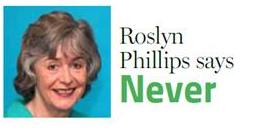I advocate for Christians to be engaged in all political parties and at all levels of government. There is no one Christian party. And there is no political sphere where Christian influence and the values of the Christian gospel are not relevant. Some churches presume that voting one way is the only Christian thing to do. There are pastors and churches on all sides of the spectrum who make that mistake. At the last state election I was proud of my church when one of our members ran locally for Family First, another offered to hand out how-to-vote cards for the Greens, and others were voting for both major parties. As we prayed and discussed faith and politics, we celebrated engaging politically and taking an interest in public affairs from a faith perspective.
I usually vote for the Australian Greens, mainly because of their advocacy of some of the bigger justice issues our country faces.
Obviously the Greens are strong advocates for the environment. I am a Christian who takes seriously God’s command to look after creation. I am also a parent who longs to see my grandchildren grow up in a world with less pollution and environmental disasters caused by climate change. We need stronger voices and more proactive action to preserve the environment. The Ten Commandments are still high on my list of values, including the one against stealing. And I have become convinced that using up the earth’s resources and downplaying environmental care is stealing from the next generations.
The Greens are not just a single issue environmental party. They are also broadly committed to social justice. They aspire to address the issues of crime, disease and discrimination at the level of cause – by alleviating inequalities in our society. They espouse peace and non-violence, and in a world of militarism gone rampant we need more voices advocating non-violent solutions to conflict. When the federal government is debating these matters—Australia’s treatment of asylum seekers; reconciliation or closing the gap for Indigenous Australians; and an appropriate level of foreign aid—the Greens are advocating more compassionate and just responses than any of the other parties.
I understand there are moral reasons some Christians would not vote for The Greens. But the Greens also value grassroots, participatory democracy. For Christians who are concerned about moral stands that the Greens take, I encourage them to get involved. Listen to the debate and make your voice heard at the local levels of the party. I applaud a number of Christians who have engaged locally with The Greens or ran for election on the Greens’ ticket. Christians in any organisation and every political party will find that at times they do not always agree with everything, but they can work together to influence those things they feel are most important. The environment, asylum seekers, and reconciliation are areas I most passionately hope to see changed, so that Australia can be more in line with the Kingdom values and God’s dream for our country. So I appreciate and affirm the Greens’ advocacy in these areas.
There is also a political reason I vote for the Greens, which is the same reason I have voted for other minority parties. Minority members help keep government honest. It was the Democrats’ slogan over two decades ago that instilled that thought in me. A friend commented to me that people who vote Greens “are hoping that they may just be an aggravating little voice of conscience in the machinations of the larger political machine”. The two major political parties are in many ways alike, especially their underlying economic rationalism. An alternative voice—especially the Greens’ voice with their advocacy of ecological sustainability, grassroots participatory democracy, social justice, and peace and non-violence (their four core values according to their website greens.org.au) is a voice I want to hear more of in Australia. Those values strangely remind me of things a Friend of mine spoke about in his life and teaching – which is why I follow him as a Christian, and why I vote for the Australian Greens.
Darren Cronshaw is Pastor of AuburnLife in Melbourne. (AuburnLife, as a Baptist church, is non-partisan, and does not endorse or condemn its pastor’s political views; nor necessarily does anyone else Darren works for, lives with or is related to.)
 David Hastie says his pen hovers
David Hastie says his pen hovers
Along with many other Australian Christians who believe in social gospel I have almost voted Green for years. Almost.
Old growth logging, marine reserves, asylum seeking, Indigenous rights: tick all the progressive boxes. But just as my stubby pencil hovers over the ballot, the Greens say something silly about religion. Every time. And the substantial demographic of Australian Christian progressives stampede panicking back to the arms of conservative politics.
This time it was the Commonwealth Chaplaincy programme. The fascinating High Court case brought in June this year by Queensland school parent and atheist Ron Williams ruled it unlawful for the Federal Government to fund the Chaplaincy programme, already operating in 2700 schools nationwide, with its promised extension to a further 1000.
Senator Christine Milne, in welcoming the High Court ruling, stated that: “Schools across Australia need the resources to employ properly qualified counsellors, student support officers and other non-teaching staff to help students through difficult times.”
I guess the ideological high ground is a beautiful place: for those with all opinion and no responsibility.
Look at the numbers: there are chaplains in 2700 schools, soon to be 3700. Most of these schools already have a school counsellor, overworked and underpaid, and filling an entirely different role to a chaplain. School counsellors keep a strategically low (almost furtive) profile, and mostly deal reactively and formally to student trauma, abnormal mental health, and mass school crises.
A school counsellor typically has a bachelor’s degree, a postgrad in education, and a masters in educational psychology. This is (at least) an 8 year training process. The Greens will either need to supply an additional 2700 such workers, come up with some other definition of and source for “a school counsellor”, or suddenly and violently create chaplain-shaped holes in 2700 outraged school communities. Not good for votes.
I am quite happy to vote Green in the local council elections: they look after parks, recycling and protection from the darker angels of the property developer’s nature. But go further up the political food chain and my stubby voting pencil pauses.
As an educationalist, for everything I agree with in the Greens’ social policy, there is an equal and opposite reaction: independent (and in Australia that means religious) school funding; the Commonwealth Chaplaincy programme. And then there is the mass of often wacky Greens policies governing personal and sexual morality. All of these issues and many others cause problems for many Australian Christians; they are a far cry from the core business of environmentalism, a cause so dear to so many Christians who believe in nature-stewardship theologies.
I say it is time that the Greens get savvy to the massive Australian religious vote, and bring Christian progressives into their leafy embrace.
David Hastie is a regular commentator on Education in ‘Eternity’ and the mainstream media.
Some years ago, an electoral officer helped my elderly aunt cast her vote in the federal election.
“I saw John Howard on TV the other day,” she told him. “He looked so smug and arrogant—I’m not voting for him. And I don’t want to vote for Labor either. I think I’ll go for a party in the middle, like the Greens. They want to protect the environment.”
She told me about her vote when I called a few days later. I explained that the Greens were hardly in the middle of the political spectrum – they were more like the radical far left. The Greens certainly want to protect the environment, but they also want a whole lot of other things—including gay marriage.
My aunt was horrified. “I had no idea!” she said. She was not alone. The Greens’ vote has risen significantly in recent years. However, it now seems to be in decline as more people realise that the Greens do not confine their activities to saving whales, old-growth forests and yellow-footed rock wallabies.
Before each state and federal election, FamilyVoice Australia emails all candidates, asking ten questions on issues relating to family, faith and freedom.
We have asked, for example, whether the candidates or their parties would retain Christian prayers in parliament—reflecting our nation’s Christian heritage to which we owe our democratic systems, and reminding MPs that they are answerable to a higher authority.
The Greens are generally quite specific: No.
What about preserving the time-honoured man-woman meaning of marriage, recognising children’s need for both male and female role models as they develop their identity? No.
Do they oppose the creation of children by surrogacy as a commodity for same-sex couples? No.
Do they oppose moves to legalise euthanasia—which would allow doctors to intentionally kill patients? No again. Indeed, the Greens are promoting such moves.
The Greens also want to soften drug laws to allow cannabis to be used for “medicinal” purposes—despite its potentially serious side effects of depression, possible schizophrenia, psychosis and immune suppression. “Medical marijuana” laws overseas are regularly abused, and US states with such laws have much higher rates of cannabis addiction.
But I do support some Greens’ policies. I want to see poker machines phased out of pubs and clubs. The Greens generally agree.
Before the recent Queensland election we asked all candidates if they supported the restoration of their state’s upper house. Queensland Labor abolished its Legislative Council in 1922 in breach of an earlier referendum, giving the Premier and his ministers full control of the government. Subsequent governments of both parties have become addicted to this absolute power, despite its associated risk of corruption.
Campbell Newman, like Anna Bligh before the previous election, answered “No” to our survey question about restoring the Queensland house of review along the lines of the Federal Senate.
But the Greens said “Yes”.
My cynical side can’t help wondering whether the Greens would feel the same way if they had been likely to win government in the lower house. But we continue to communicate with them, praying that one day they will come to understand the value of our Christian heritage, which has given us the great principles of the sanctity of human life, and marriage as the exclusive lifelong union of a man and a woman. These form the foundation of stable families and society’s future. In the meantime, however, I don’t vote Greens.
Roslyn Phillips is national research officer, FamilyVoice Australia
Email This Story
Why not send this to a friend?



